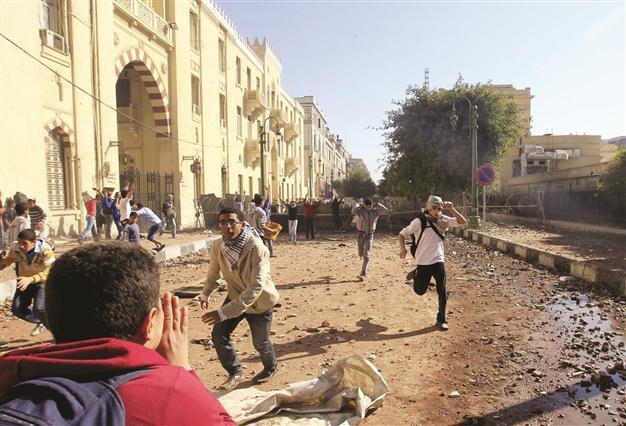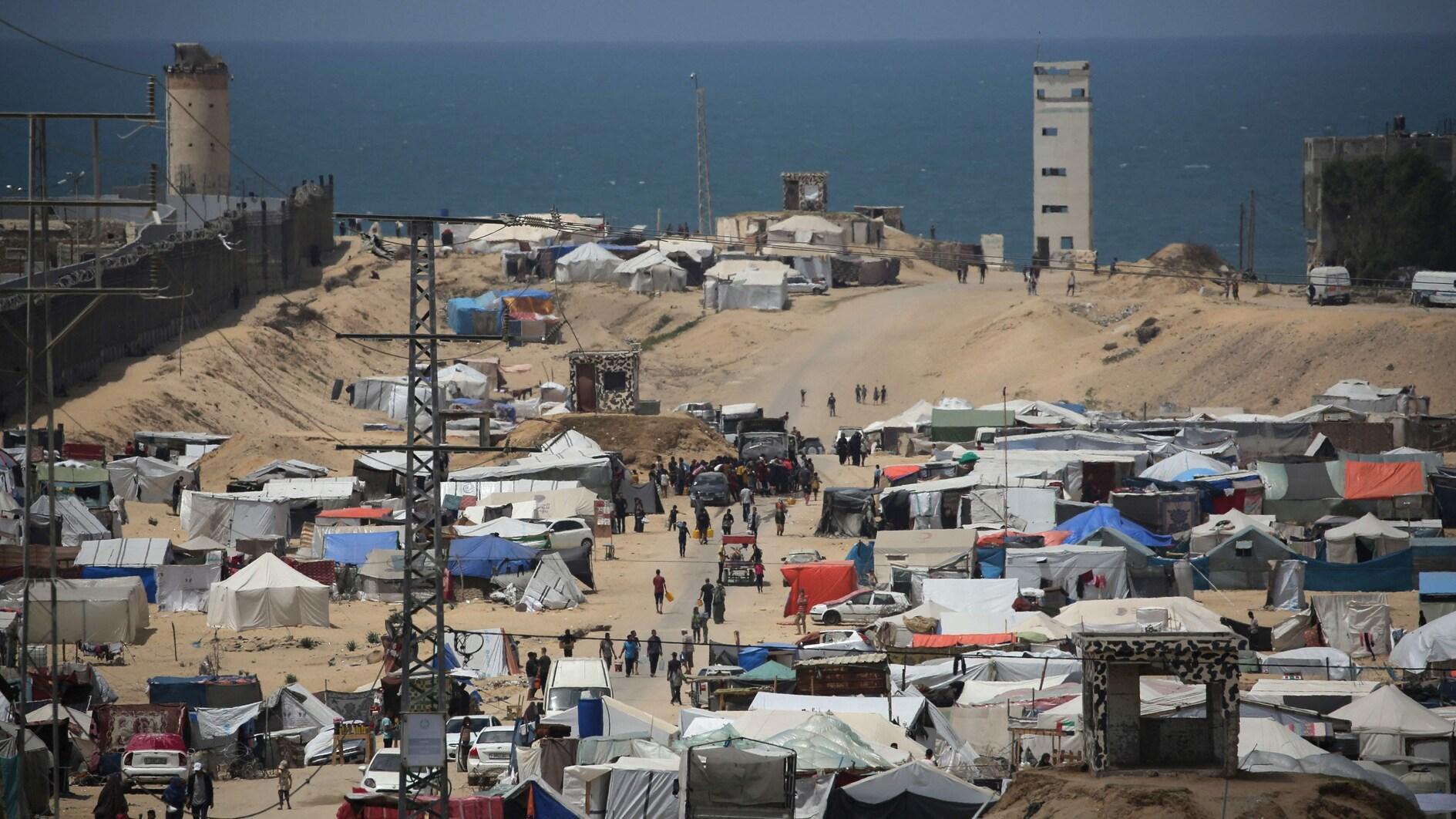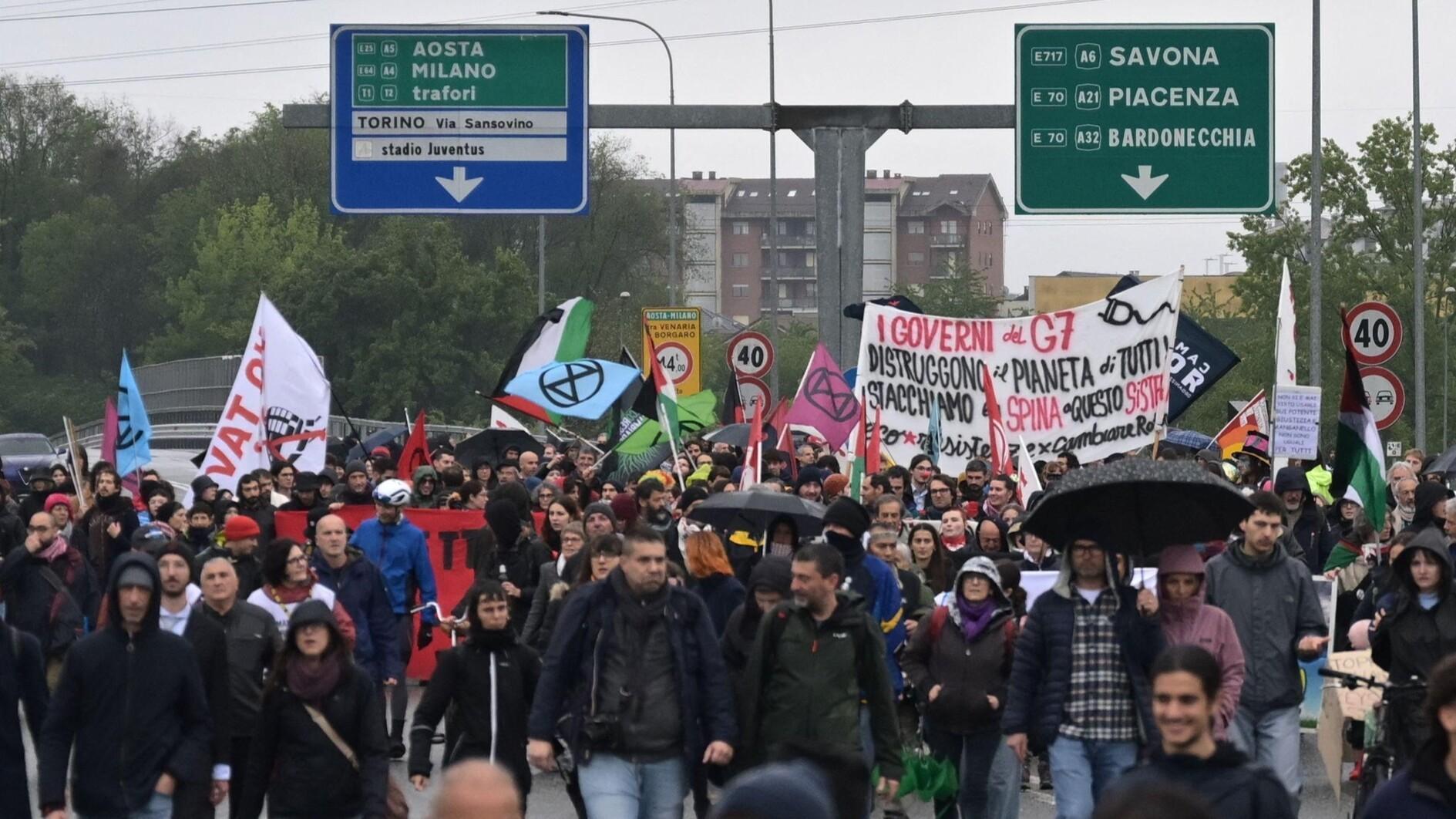Violence rocks Egypt as Islamists extend success
CAIRO

Protesters run for cover during clashes. Soldiers (inset) drag a female protester during clashes at Tahrir Square on Dec. 17 AFP phoyo
Protesters and security forces fought in Cairo yesterday on the third day of clashes that have killed 10 and wounded at least 400 people, exposing concerns over the army’s role as it manages Egypt’s transition from military to civilian rule.Activists say most of the 10 fatalities died of gunshot wounds. The fighting, sparked when troops sought to break up a sit-in outside the Cabinet headquarters, has seen a particularly heavy military hand. In video footage, military police have been shown dragging women by the hair, stripping the shirt off one veiled woman and ferociously beating, kicking and stomping on protesters cowering on the ground.
The clashes were the deadliest in weeks and have sparked furious debate over the army’s role during the transition. Some argued protesters were sabotaging the elections, seen by some as the first step toward democratic rule. Prime Minister Kamal al-Ganzuri raised tensions by accusing the protesters of being counter-revolutionaries, denying security forces had opened fire on them. “Those who are in Tahrir Square are not the youth of the revolution,” he told a news conference. “This is not a revolution, but a counter-revolution,” said Ganzuri, who also served as premier under Mubarak.
In a statement posted on its Facebook page, the ruling military council yesterday called the clashes part of a “conspiracy” against Egypt. It said its forces had the right to defend the “property of the great people of Egypt.” Seeking to depict the protesters as hooligans and counter the widely published images of protesters being beaten, it also posted footage of young men throwing rocks at a basement window of the parliament building and of at least one man trying to set the place ablaze.
Brotherhood gets 40 percent“
The military council uses every opportunity to show itself as the land’s strongest institution,” said Mohammed Abbas, an activist who defected from the Muslim Brotherhood, Egypt’s largest organized political group, to side with youth groups more active in protests. “We are making it easier for the generals by our divisions and isolation.” In yesterday’s clash, protesters and troops battled on two main streets off central Tahrir Square, trading volleys of stones and firebombs around barriers the military set up to block the avenues.
The renewed violence took place as unofficial results from a second round of voting in parliamentary elections showed Islamist parties, led by the Muslim Brotherhood, continuing their dominance at the polls. Liberal and left-leaning parties, many of whom were sympathetic to the revolutionaries, have been trounced at the ballots.
The Muslim Brotherhood’s party list secured about 40 percent of votes counted so far in the second round of Egypt’s staggered parliamentary election, a party source said yesterday. The list led by the Brotherhood’s Freedom and Justice Party (FJP) won about 37 percent of votes in the first round. The third and final round of voting is slated for next month in nine of Egypt’s 27 provinces.
Compiled from Reuters, AFP and AP stories by the Daily News staff.
















